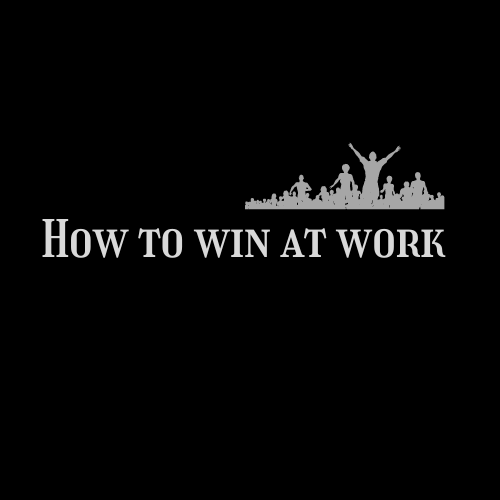In part I of winning at work, I focused your attention on why winning is important. In this segment, I want to give you a clear and concise practical guide on winning. Following are the action items on how to win:
First, Take a self assessment: This means two things:
- Writing down your life’s vision and values: Having a vision is like having a map. It tells you where you destiny is and you can aim at getting there. Values will help you make the right decisions while you are on your journey. Check the example of writing your vision down below.
- Take a personality assessment: Knowing your personality traits will help you make wise and informed choices. It will give you insight into why you do what you do. It will also help you to take project loads with discretion. Two most popular tests that I would recommend are: The Big Five personality test and Clifton Strength Finder.
Second, Keep a journal
- Reflection journaling: Each day will being with itself different sets of blessings and challenges. Writing them down along with the insights and wisdom that you obtain through them will eventually become a huge reservoir of wisdom through the compounding of your journaling. Additionally, journaling will provide you with the buffer from the work related stress and pressures. You will have the opportunity to dump all of your hopes, fears, anxieties, conflicts, etc on to your journal without the fear of judgment.
- Growth Tracking Journaling: This journaling will be extremely important for your professional growth. Let’s assume that you lack in a certain area and you decide to work on it and get better at it. Get a new journal and mention what skills or abilities you want to develop. Write down an action plan and a list of responsibilities you will have to take to master those skills. Each time you encounter a hurdle, go back to this journal and review your action plan and responsibilities and then do what you’ve committed to do. This is the promise to yourself, keeping it will mean so much to your future self. When you see the positive results of hard work, mention it in the journal and then celebrate!!
Third, Put Big Efforts for Big Results: In the field of I.O Psychology, this is called Discretionary Effort. Which simply means that you are discreet about what needs to get done and do it regardless of whether it is your responsibility or not. You have finished your project and have extra time? Don’t scroll on social media. Go ask your boss if there is something you can get off their plate.
Fourth, Deliver more and fast: Getting into the habit of being productive makes you an asset for your organization. It reflects your character and shows to the world that you are a victor. It automatically generates utmost respect for you in the team and the organization. Remember, the first few weeks of doing this will be hard. You might even hear your inner critic call you a naive fool for working harder for the money you make. But wait! Your efforts are being noticed. You deliver more and fast for three to four months, without complaining or whining, you are sure to be noticed as a blessing painful to part with.
Fifth, Create Candescent Connections: I love alliterations! But this is especially meaningful. Creating candescent connections has to do with two very pivotal aspects of your professional life:
-
- Communication: Clear communication will elevate you beyond the achievable standards! Remember that just by doing the above 4 points, you are communicating with self and your environment (through your actions). Recommendations 1 & 2 are intra communication where you are connecting with self in order to connect effectively with others. 3 & 4 are communicating with your environment which includes your boss, manager, supervisor, colleagues, etc (through your actions). Actions speak louder than words but words are very important! Learning new vocabulary, phrases, terminology and keeping a positive and confident tone will make you a stellar communicator. Remember that reading writing helps with verbal processing. So, when you journal and read to become knowledgable, you are indirectly working on your verbal fluency and articulation.
- Conflict Resolution: Conflict is inevitable! Now, how you engage in it will either undermine your effort in all of the above categories or consolidate it. Learning how to engage in conflict is paramount. Each individual engages differently in conflict. We all have different conflict styles and tendencies. Becoming aware of your particular style will help you significantly to use conflicts and contentions to your advantage. Conflict resolution is one of skills about which people thenk they are legends until they are confronted by conflict itself. I offer services in conflict resolutions. Head on to the services section and check out my Right Fight package.
Hope that this article was of help. In part III of winning at work, I delineate on how to course correct your trajectory if you are losing at work and salvage your professional life.



